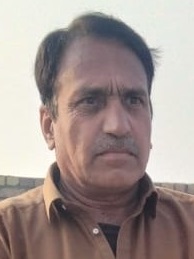Naseem-ur-Rahman
PESHAWAR: In the bustling town of Charsadda, Hamza, a determined young man with a bachelor’s degree in sociology, navigated life’s challenges with resilience. Despite his mobility impairment, Hamza’s aspirations soared high, fueled by a desire to contribute meaningfully to his community.
Each day, as Hamza ventured through the streets of Charsadda, he encountered barriers that tested his resolve. The absence of wheelchair ramps and inaccessible public spaces made simple tasks arduous. Crossing busy roads without auditory signals heightened his sense of vulnerability, yet Hamza pressed on, his determination unwavering.
His journey extended beyond physical obstacles. As a devout Muslim, Hamza longed to pray at the mosque, but accessibility issues barred his path. The lack of ramps made entry difficult, leaving Hamza feeling excluded from communal worship. Despite his unwavering faith, the physical barriers weighed heavily on his heart.
In his pursuit of employment, Hamza faced another formidable challenge. The distribution of government job quotas, intended to provide opportunities for PWDs like him, often fell short of its promise. Merit-based selection processes gave way to political affiliations, leaving deserving candidates like Hamza overlooked and disheartened.
Amidst these trials, hope flickered in the form of proposals presented by Ahmad Hussain, a member of a civil society organization. The vision of permanent ramps at primary schools, accessibility in mosques, and a transparent ‘Right to Information’ mechanism stirred Hamza’s optimism. However, the reality remained stark – a world where promises lingered, unfulfilled, and obstacles persisted.
The journey of Hamza, marked by resilience and determination, mirrored the broader narrative of PWDs in Charsadda. Despite his bachelor’s degree and aspirations, the road to inclusivity seemed long and uncertain. The town, once vibrant with potential, bore witness to the struggles of its marginalized members, their dreams deferred by a system plagued with indifference and bureaucracy.
As Hamza looked to the horizon, his heart heavy with unmet aspirations, he remained steadfast in his belief that change was possible. Every day, he carried the weight of unaddressed challenges, yet his spirit remained unbroken, a testament to the resilience of the human spirit in the face of adversity.
In the tapestry of Charsadda’s narrative, Hamza’s story was a poignant reminder – a reminder of the urgent need for change, for inclusivity, and for a community that embraced its diversity wholeheartedly.
Related Posts





Comments